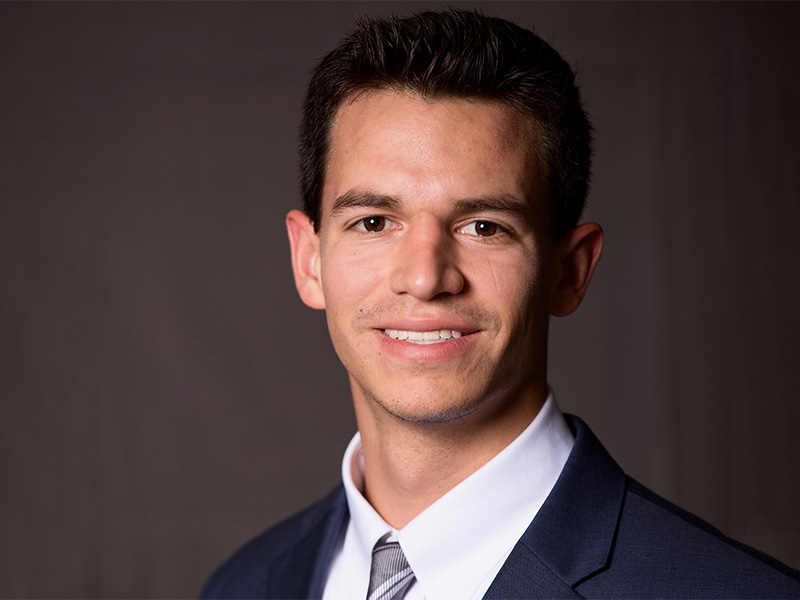Luis Rebollar knows the impact that engineers can have on the world. It’s why he chose to pursue his doctoral degree.

Luis Rebollar
Rebollar, who will deliver remarks as the graduate speaker during the College of Engineering’s graduation ceremonies on June 8, came to Drexel to continue research that he started as an undergraduate at Tufts University on energy storage. His interest in the subject stemmed from the need to move the world away from fossil fuels.
“I think at this point it's pretty evident that solar will be a huge part of sustainable electricity generation moving forward, but a huge gap in implementing that in a commercial manner is that the energy storage capacity is just not there,” he says. “We generally can collect energy when it’s warm and sunny out, but when it’s dark and cold and we need to use it, that has to come from reliable storage technology. That’s why I focused on energy storage and energy conversion in general.”
As an undergraduate, Rebollar worked with Matthew Panzer, PhD, a chemical engineer who works with nonvolatile liquids to develop gel electrolytes for batteries and supercapacitors. He wanted to take what he learned and go immediately into the energy industry, but was encouraged to continue his studies.
“Someone suggest that, if I went directly into industry with just a bachelor’s, I would wind up in a lab and kind of be told what to do, rather than having my own independent research project,” he recalls. “So I concluded that grad school was the better move for me — I could build experience and expertise and have some authority walking into a lab.”
The next step in his education planned, Rebollar needed to find the best fit for him. Drexel quickly rose above the pack.
“I visited during one of the open house weekends, and the people I met — specifically the faculty and the areas of research that they were offering — were very, very attractive,” he says. “I remember thinking or feeling that there could have been three or four different labs that I could have ended up in that I would have been really happy in, and so I felt that my chances of ending up in a lab that offered on the type of research that I was interested in and that I was passionate about were very high at Drexel. So it was kind of a bit of a no brainer.”
Rebollar wound up working with Maureen Tang, PhD, associate professor of chemical and biological engineering. Tang’s lab studies the fundamental physics and chemistry of systems and materials for electrochemical energy storage and conversion. Rebollar specifically worked on hydrogen oxidation in fuel cells — a process in which hydrogen is broken down into two protons and two electrons, each of which play a role in creating electricity.
“Professor Tang has done a really good job of covering all bases of electrochemistry, or at least very large ones,” he says. “There are students like me working on hydrogen oxidation, some working on oxygen reduction, and others working on ozone production. The benefit is that, working in her lab, you get exposure to all of these methods regardless of whether you’re studying them directly. I was very fortunate to end up in her lab and have her as a mentor.”
With his doctorate complete, Rebollar will finally make the jump to industry. He has secured a job with General Motors, working with a team to help the company retool its vehicle lineup to be all electric in the next 15 years. He recognizes that there are multiple approaches to the problem of creating safe, efficient, and inexpensive electric vehicles, but says that what he’s learned as a doctoral student has him prepared for the challenge.
“No matter how much you think you know about something, you don't know everything, and so one of the skills that you inevitably develop is a kind of critical thinking and reasoning through very complex problems — breaking them down into questions that you can answer, step by step,” he says. “I think that's a skill that will carry over for the rest of my career.”